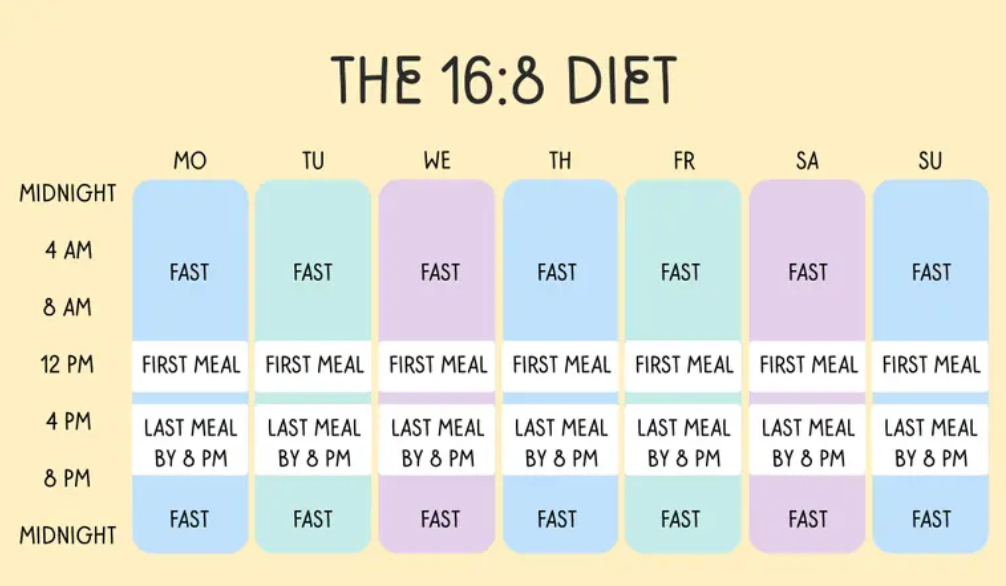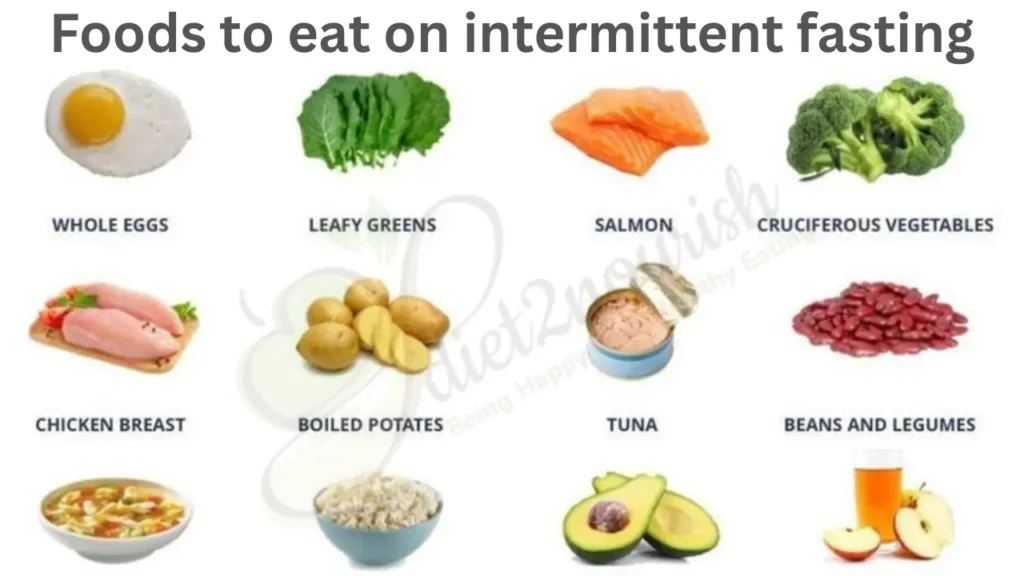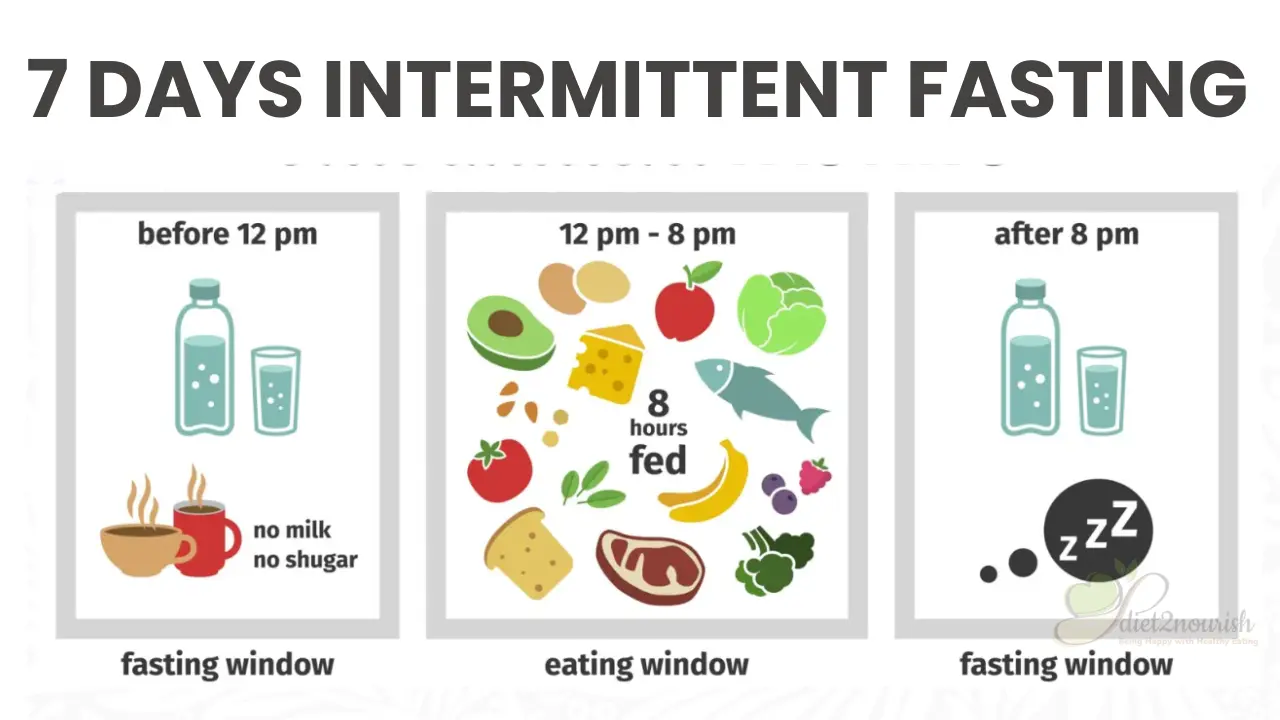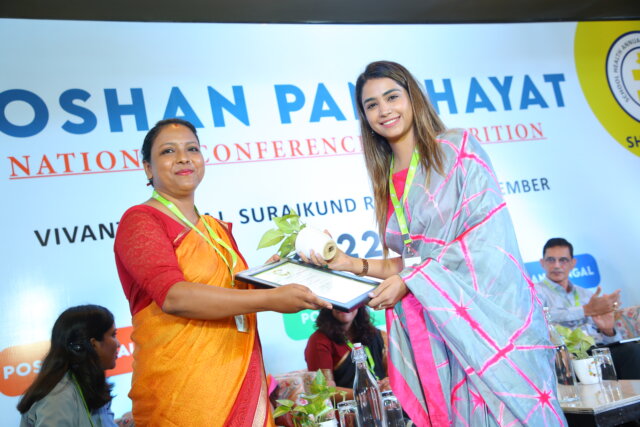Intermittent fasting is one of the trending weight reduction traits nowadays. Fasting may additionally seem frightening. But it had on fitness and weight reduction advantages of it.
Intermittent fasting, also known as the fast diet, includes alternating cycles of fasting and eating. During the fasting period, you can drink water, coffee, tea to keep you full. There are various intermittent fasting plans such as 7-Day Meal Plan for Intermittent Fasting.The main thing is that you can pick one that works well for you and your way of life. It’s a simple way to eat much fewer calories and shed weight pounds, so let’s check-in!
Intermittent Fasting for beginners: the way to Get started out
There is more than one approach for intermittent fasting, and in case you’re interested in giving it a try. The primary thing you’ll need to do is select the fasting pattern that’s proper for you.
Here are 5 ideas to get you began:
12/12 approach

This method is best for beginners. You fast for 12 hours and eat in a 12-hour window. In case your last meal of the day is at 6 pm, you wouldn’t eat again until 6 am. This one is pretty easy, and you may even already be doing it! The most important part isn’t to eat a late-night snack, even if you feel hungry.
16/8 approach

With this approach, you simply eat within an 8-hour time each day or for the opposite 16 hours. As an example, you simply consume between 10 am and 6 pm or 12 pm and 8 pm.
20/4 approach

That is where it starts off evolved to get a touch more intense. With the 20/4 approach, you only eat within four hours every day and fast for 20 hours.
5:2 approach
For 5 days of the week, you can consume when you want. While for the alternative 2 days you need to consume only 500 to 600 calories.
Benefits of Intermittent Fasting
Benefits that include the intermittent fasting meal are:
• Better cognition and brain function
• Reduced insulin resistance/chance of type 2 diabetes
• Low blood pressure and cholesterol
• Reduced inflammation
- Weight Loss
7-Day Meal Plan for Intermittent Fasting :

Day 1: Eating Day
Breakfast:
Veggies Upma along with 1 glass of skimmed milk
Mid- Morning:
Roasted Chickpeas
Lunch:
Brown Rice with Dal along with vegetable raita
Snack:
Fruit Salad
Dinner:
Grilled fish with stir-fried vegetables
Day2: Fasting Day
Water, Green/ Lemon tea, or Black coffee only
Day 3: Eating Day
Breakfast:
Whole wheat toast with omelet
Mid –Morning;
Yogurt with seasonal fruits
Lunch:
Roti with chana curry along with salad
Snack:
Carrot Sticks with hummus
Dinner:
Chicken/paneer tikka with grilled vegetables
Day 4: Fasting Day
Water, Green/ Lemon tea, or Black coffee only
Day 5: Eating Day:
Breakfast:
Poha with Veggies along with yogurt
Mid- Morning:
Mixed Nuts
Lunch:
Quinoa Salad with chickpeas and cucumber
Snack:
Makhana (Roasted)
Dinner:
Brown rice with palak paneer (spinach with cottage cheese gravy)
Day 6: Fasting Day
Water, Green/ Lemon tea, or Black coffee only
Day 7:Eating Day
Breakfast:
Moong dal Cheela with mind chutney
Mid-Morning:
Fruit Smoothie
Lunch:
Vegetable rice with raita
Snack:
Mixed seeds
Dinner:
Grilled tofu with stir-fried vegetables
Foods to eat while on intermittent fasting:

Eating these foods while following an intermittent fasting technique :
1. Lean proteins
Proteins for your body help you build immune health and maintain muscle mass. Basically muscle performs a critical role in boosting blood sugar stability and recollecting your metabolism fast.
Some examples of lean proteins are
- Chicken breast
- Greek yogurt
- Beans
- Tofu
- Tempeh.
2. Fish and seafood
At your feeding time, eating fish and other seafood can be a good idea. Salmon and sardines are high in omega-3 fat and even protein, which could help in boosting health.
Some types of fish and seafood you could consume :
- Anchovies,
- Crab
- Lobster
- Mackerel
- Mussels
- Oysters
- Shrimp.
3. Low-sugar fruits
Fruits are filled with vitamins, minerals, phytonutrients, and fiber, which can be good for your health while fasting.
Fruits you can eat:
- Apple
- Oranges
- Peaches
- Grapefruits
- Kiwi
- Pears
- Blackberries
- Strawberries
- Avocado
- Tomatoes
- Lemons
- Apricots
- Blueberries and melons.
4. Veggies
Vegetables need to be a part of your 7-Day Meal Plan for Intermittent Fasting. Including leafy veggies decreases your heart sickness, type 2 diabetes, cancers,etc.
Some vegetable:
- Carrots
- Broccoli
- Cauliflower
- Beans
- Kale
- Spinach
- Cabbage
- Brussels sprouts
- Celery and asparagus
5. Whole Grains
Whole grains gives a complete package deal of health benefits to your body.
Some whole grains you can consume are
- Natural oatmeal
- Organic millet
- Organic quinoa
- Brown rice,
- Natural black rice and wild rice
6. Beans and legumes
Beans and legumes are loaded with fiber, antioxidants, protein, B nutrients that your body needs:
Examples of beans and legumes are
- Black beans,
- Chickpeas (garbanzo beans),
- Green beans,
- Lima beans,
- Kidney beans and lentils.
7. Healthy Fats
Healthy fats are essential for your body to function properly. They’re needed to support cellular health, energy, and hormone production. It also allows insulation that maintains you warm and protects your organs.
Some sources of healthy fat are
- Olive Oil
- Avocado Oil
- Coconut Oil,
- MCT Oil,
- Ghee,
- Avocados,
- Nuts And Nut Butter,
- Chia Seeds,
- Flaxseeds And Olives.
8. Herbs and spices
Herbs and spices offer a mighty, effective effect on your fitness.
Herbs and spices can be
- Turmeric
- Ginger,
- Cinnamon
- Clove
- Sage,
- Rosemary and thyme.
9. Probiotics
Probiotic ingredients can be helpful in improving your digestion and metabolism.
Foods to avoid while on 7 days Intermittent Fasting include:
— Cookies.
— Sugar Candy.
— Cake & Pastries
— Barbecue sauce.
— Fruit juice
— Sugary cereals
Side effects of 7 days Intermittent fasting:
You may have some issues while following your diet plan such as :
- Hunger
- Headache
- Exhaustion
- Irritation
- Lack of sleep
- Nutrient deficiencies
However, these are some temporary effects that you can manage .Through being hydrated, reduce caffeine intake.
Some important tips while following 7 days Intermittent fasting :
Drink Plenty of water:
While following a 7-Day Meal Plan for Intermittent Fasting. You must ensure that you intake plenty of water to stay hydrated.
Schedule your meals
Proper meal planning is important for any diet plan. You need to make your snacks or food ready when your eating window opens. Planning helps you to be on healthy food choices.
Go for Nutrient Dense foods:
Consume Nutrient dense foods when you’re foods window is limited. Choose essential nutrients such as Fruits, green veggies, lean proteins, and whole grains.
Calorie Intake
Focus on calorie intake while selecting your food items is essential. Have nutrient-dense foods and limit high-calorie options.
Stay Active:
While fasting, moderate activity such as cardio, Zumba, or walking. Some kind of exercise gives you more good results.
Bottom line:
To good results with intermittent fasting, follow a schedule properly. Stay hydrated, choice nutrient dense foods. Do some workout activities in your routine. Being Patient with results and maintaining consistency are important things.
Frequently asked questions (FAQs)
Yes, but it should be without milk or sugar. Going for black or lemon tea during fasting gives you good results.
Weight loss can be 4-5 kgs. Depends on metabolism, calorie intake, and your lifestyle habits.
It does not suit everyone, especially people who suffer from diabetes or BP. So you need to consult with a dietitian .To have a proper schedule as per your body’s needs.
Exercise and intermittent fasting together can help in reducing weight by 3-4 kgs per week. This is considered as healthy weight loss.
It is recommended to follow certain food preferences in case of 12-hour fasting which is lighter, easily digestible, healthy, and can increase your energy levels naturally. Opt for fresh fruits, dates, yogurt, veggies, or smoothies after a 12-hour fast. A vegetable and fruit smoothie with dry fruits is considered the best option to break the fasting period of 12 hours.










